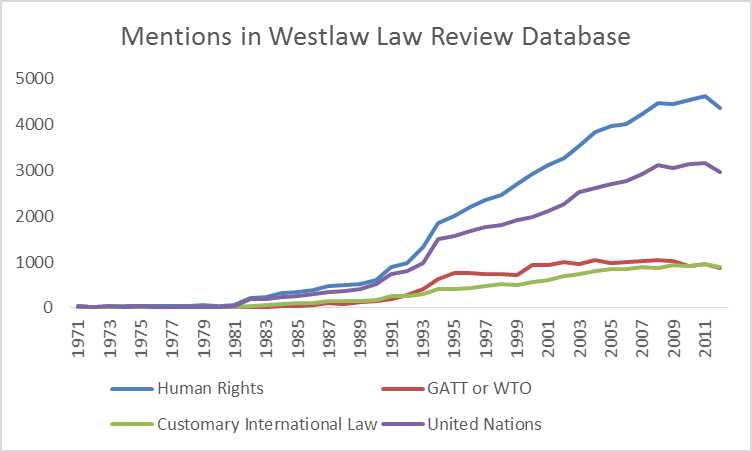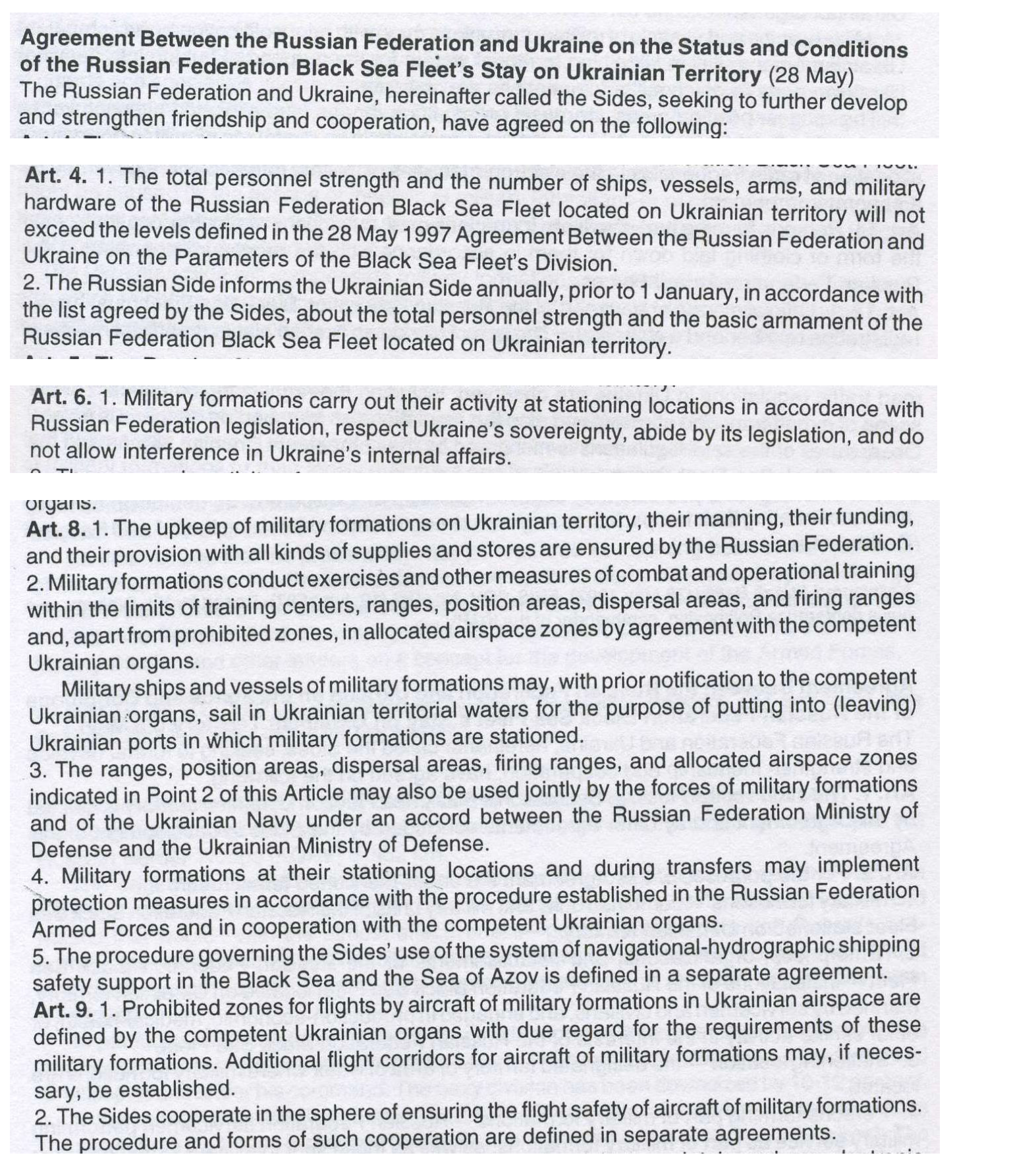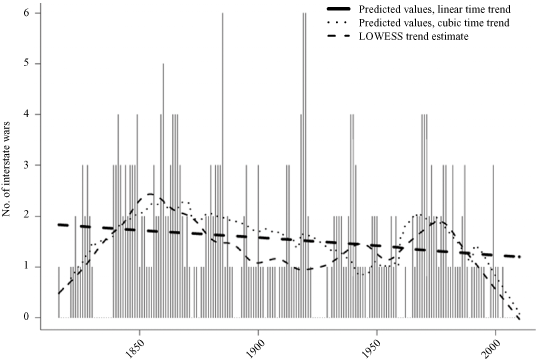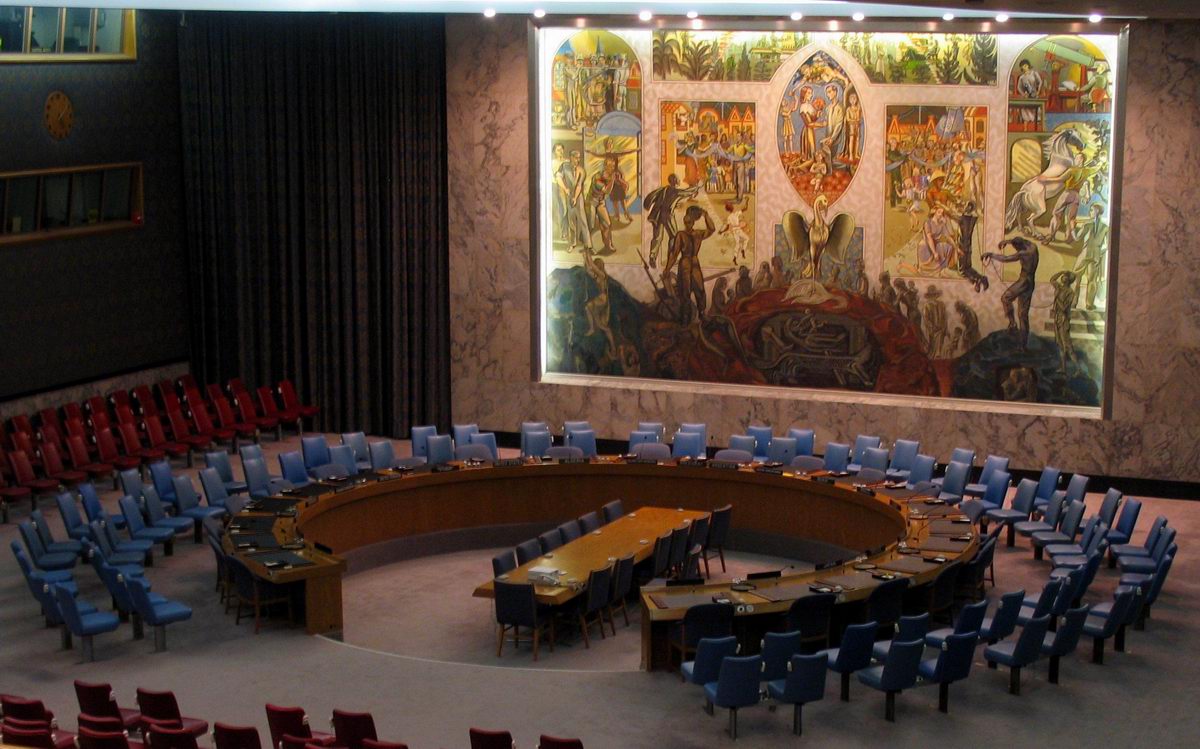From his speech to the Duma (with my annotations in brackets):
However, what do we hear from our colleagues in Western Europe and North America? They say we are violating norms of international law. Firstly, it’s a good thing that they at least remember that there exists such a thing as international law – better late than never. [So there!]
Secondly, and most importantly – what exactly are we violating? True, the President of the Russian Federation received permission from the Upper House of Parliament to use the Armed Forces in Ukraine. However, strictly speaking, nobody has acted on this permission yet. Russia’s Armed Forces never entered Crimea; they were there already in line with an international agreement. True, we did enhance our forces there [without entering?]; however – this is something I would like everyone to hear and know – we did not exceed the personnel limit of our Armed Forces in Crimea, which is set at 25,000, because there was no need to do so. [But Russian forces appear to have roamed about Crimea in violation of this agreement as well as the UN Charter.]
Next. As it declared independence and decided to hold a referendum, the Supreme Council of Crimea referred to the United Nations Charter, which speaks of the right of nations to self-determination [true]. Incidentally, I would like to remind you that when Ukraine seceded from the USSR it did exactly the same thing, almost word for word. Ukraine used this right, yet the residents of Crimea are denied it. Why is that? [Why indeed?]
Moreover, the Crimean authorities referred to the well-known Kosovo precedent – a precedent our western colleagues created with their own hands in a very similar situation, when they agreed that the unilateral separation of Kosovo from Serbia, exactly what Crimea is doing now, was legitimate and did not require any permission from the country’s central authorities. Pursuant to Article 2, Chapter 1 of the United Nations Charter, the UN International Court agreed with this approach and made the following comment in its ruling of July 22, 2010, and I quote: “No general prohibition may be inferred from the practice of the Security Council with regard to declarations of independence,” and “General international law contains no prohibition on declarations of independence.” Crystal clear, as they say. [I’m afraid so.]
I do not like to resort to quotes, but in this case, I cannot help it. Here is a quote from another official document: the Written Statement of the United States America of April 17, 2009, submitted to the same UN International Court in connection with the hearings on Kosovo. Again, I quote: “Declarations of independence may, and often do, violate domestic legislation. However, this does not make them violations of international law.” [Right.] End of quote. They wrote this, disseminated it all over the world, had everyone agree and now they are outraged. Over what? The actions of Crimean people completely fit in with these instructions, as it were. For some reason, things that Kosovo Albanians (and we have full respect for them) were permitted to do, Russians, Ukrainians and Crimean Tatars in Crimea are not allowed. Again, one wonders why.
We keep hearing from the United States and Western Europe that Kosovo is some special case. What makes it so special in the eyes of our colleagues? It turns out that it is the fact that the conflict in Kosovo resulted in so many human casualties. Is this a legal argument? The ruling of the International Court says nothing about this. [True; it is legally irrelevant.] This is not even double standards; this is amazing, primitive, blunt cynicism. One should not try so crudely to make everything suit their interests, calling the same thing white today and black tomorrow. According to this logic, we have to make sure every conflict leads to human losses. [The U.S. position is that forcing Kosovo’s population to remain a part of a country whose government tried to massacre it would be wrong, and numerous efforts were made to broker a compromise before secession took place. Putin argues that it would be ridiculous to make Crimea wait for its population to be massacred before seceding.]
I will state clearly – if the Crimean local self-defence units had not taken the situation under control, there could have been casualties as well. [This is doubtful, as there were no massacres anywhere else in Russian-speaking Ukraine that did not benefit from “local self-defense units”.] Fortunately this did not happen. There was not a single armed confrontation in Crimea and no casualties. Why do you think this was so? The answer is simple: because it is very difficult, practically impossible to fight against the will of the people. Here I would like to thank the Ukrainian military – and this is 22,000 fully armed servicemen. I would like to thank those Ukrainian service members who refrained from bloodshed and did not smear their uniforms in blood.
Other thoughts come to mind in this connection. They keep talking of some Russian intervention in Crimea, some sort of aggression. This is strange to hear. I cannot recall a single case in history of an intervention without a single shot being fired and with no human casualties. [But because the military force was overwhelming.]
Colleagues,
Like a mirror, the situation in Ukraine reflects what is going on and what has been happening in the world over the past several decades. After the dissolution of bipolarity on the planet, we no longer have stability. Key international institutions are not getting any stronger; on the contrary, in many cases, they are sadly degrading. [True] Our western partners, led by the United States of America, prefer not to be guided by international law in their practical policies, but by the rule of the gun. [Hmm] They have come to believe in their exclusivity and exceptionalism [ahem], that they can decide the destinies of the world, that only they can ever be right. They act as they please: here and there, they use force against sovereign states, building coalitions based on the principle “If you are not with us, you are against us.” To make this aggression look legitimate, they force the necessary resolutions from international organisations, and if for some reason this does not work, they simply ignore the UN Security Council and the UN overall. [Hmm]
In other words, we did not act illegally but if we did, you did first. The subtext, I think, is that the United States claims for itself as a great power a license to disregard international law that binds everyone else, and Russia will do the same in its sphere of influence where the United States cannot compete with it.
 It doesn’t matter that the referendum did not allow voters to express a preference for the status quo, that many of the 90+ percent who favor annexation by Russia (according to (possibly questionable)
It doesn’t matter that the referendum did not allow voters to express a preference for the status quo, that many of the 90+ percent who favor annexation by Russia (according to (possibly questionable) 
 The Crimean parliament has scheduled a referendum for March 16 asking whether Crimea should secede from Ukraine and join Russia. From the standpoint of international law (Ukrainian law may be different), it is not illegal for a territory of a country to attempt to break away and form a new state. But there is a great deal of controversy over when a breakaway territory should be considered a state, which entitles it to enter treaties, join the UN, and so on. One view is that Crimea becomes a state just when other countries regard it as a state. So even if Crimea achieves de facto independence and has a government that controls it, the United States and other countries could block it from being a state just by refusing to recognize it as a state.
The Crimean parliament has scheduled a referendum for March 16 asking whether Crimea should secede from Ukraine and join Russia. From the standpoint of international law (Ukrainian law may be different), it is not illegal for a territory of a country to attempt to break away and form a new state. But there is a great deal of controversy over when a breakaway territory should be considered a state, which entitles it to enter treaties, join the UN, and so on. One view is that Crimea becomes a state just when other countries regard it as a state. So even if Crimea achieves de facto independence and has a government that controls it, the United States and other countries could block it from being a state just by refusing to recognize it as a state.

 Peter Spiro (and/or someone else operating the Opinio Juris twitter account)
Peter Spiro (and/or someone else operating the Opinio Juris twitter account) 